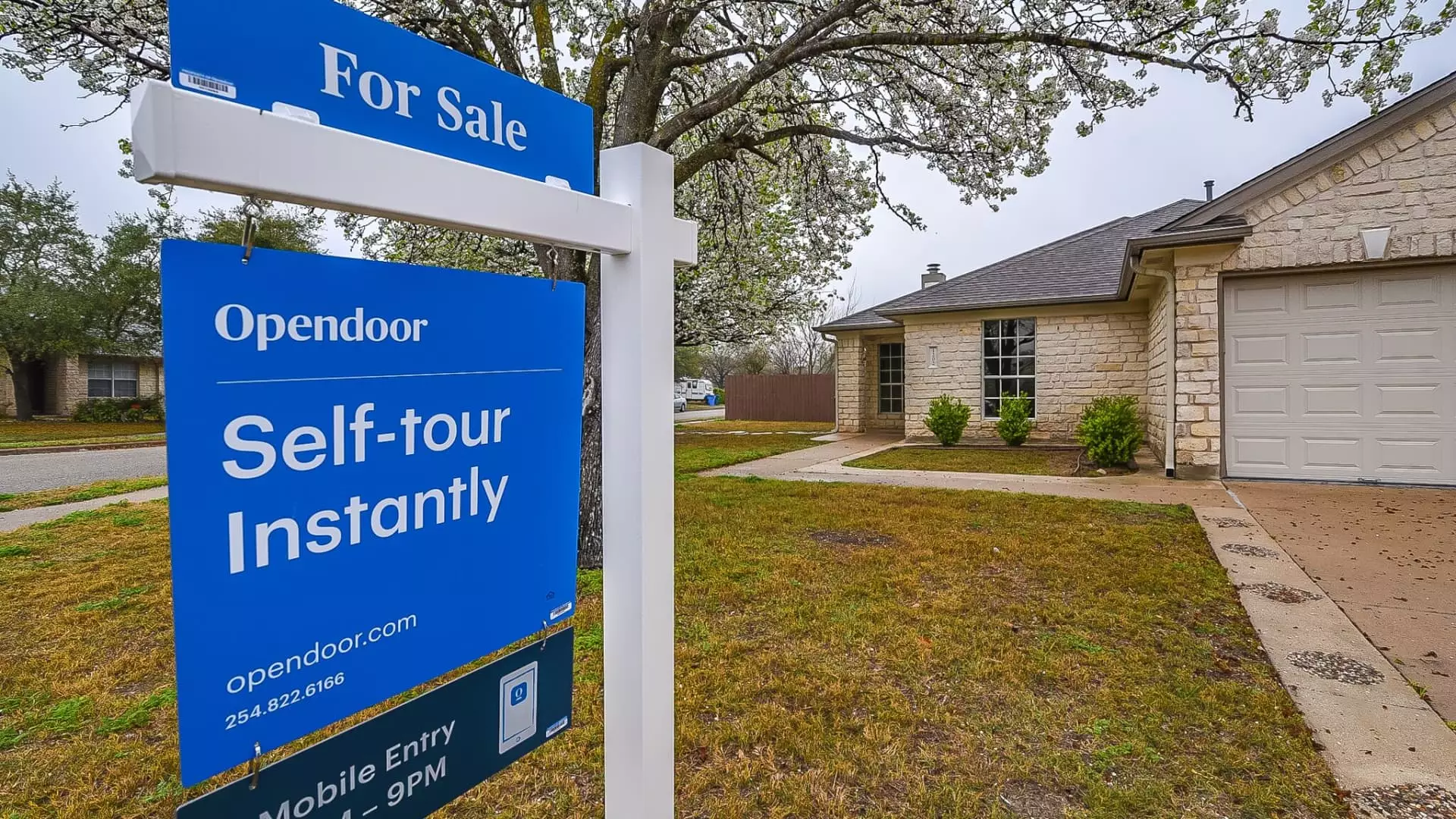In an era where tech-driven real estate companies often find themselves at the mercy of unpredictable economic tides, Opendoor’s recent stock surge underscores a profound shift in perceptions and strategic outlook. After languishing at historic lows—dropping to just 51 cents in June—the company has experienced an extraordinary rally, with shares increasing nearly fivefold since July. This extraordinary movement begs a deeper look: Is this merely speculative fervor, or does it reflect a budding belief in Opendoor’s transformative potential? While the company’s leadership has expressed gratitude for investor interest, this rebound raises questions about sustainability and the underlying fundamentals that support such volatility.
Despite the euphoric spikes, Opendoor’s core financial picture remains fragile. The company’s revenue has depreciated sharply from $15.6 billion in 2022 to just over $5 billion last year, primarily due to rising interest rates and their impact on home affordability and demand. Additionally, evident operational struggles—such as declining home acquisitions and shrinking gross margins—highlight the arduous journey to regain stability. The recent revenue bump, a modest 4%, is far from a sign of robust recovery; it’s more a reflection of fleeting optimism fueled by hedge fund backing and market speculation. The reality remains that Opendoor continues to wrestle with a business model heavily exposed to macroeconomic fluctuations beyond its immediate control.
Strategic Pivot: Less Capital-Intensive Approaches as a Lifeline
In a bold move, Opendoor’s leadership has announced a significant strategic overhaul aimed at reducing exposure to the volatile iBuying market—traditionally a capital-intensive, cyclical business—and transitioning towards a referrals-focused model. CEO Carrie Wheeler’s assertion that this represents “the most important strategic shift in our history” indicates a recognition that patience, adaptability, and innovation are crucial to long-term survival. Instead of relying solely on buying and selling homes, the company aims to generate revenue through referral partnerships, reducing risk and capital requirements.
This shift signals a departure from the high-stakes approach that once made Opendoor a darling of the Covid-era boom. Instead, it’s embracing a leaner, more sustainable business model that can withstand the harsh realities of a declining real estate cycle. Investors’ skepticism, despite the recent rally, is justified; their enthusiasm is tempered by the slow pace of revenue growth and bleak near-term outlooks, with projections showing revenue dropping by over a third in the upcoming quarter. While the strategic pivot is promising, execution will be critical—what sounds compelling in theory must prove effective in practice amid a deteriorating housing market and persistent macroeconomic headwinds.
The Influence of Market Sentiment and External Factors
Market sentiment remains a double-edged sword for Opendoor. The recent rally was propelled largely by hedge fund manager Eric Jackson’s bullish stance, promising a potential stock price ascent to $82. His confidence in the company’s long-term turnaround appears to hinge on eventual revenue growth and a revaluation of its business model. Such high-profile endorsements often sway retail investors but do little to address the real operational headwinds.
For now, the broader housing market dictates the pace of Opendoor’s recovery. The persistent rise in mortgage rates keeps buyer demand subdued, leading to fewer home purchases and increased listing inventories. These trends have forced the company to reduce marketing spending and recalibrate its acquisition targets, reflecting a pragmatic acknowledgment that short-term recovery is unlikely. The challenge lies in translating strategic restructuring into tangible results that can inspire investor confidence and sustain the recent rally without relying on speculative hype.
A Future Forged Through Innovation and Resilience
Opendoor’s evolution highlights a fundamental truth about real estate technology firms battling cyclical headwinds: resilience isn’t born from resting on past successes but from relentless innovation and strategic agility. The company’s efforts to pivot toward a less capital-heavy, more referral-driven model demonstrate a willingness to adapt before being overwhelmed by market forces. However, this transformation hinges on execution, timing, and external economic factors aligning favorably.
Despite the skepticism still lingering among many investors, there is an undeniable optimism embedded in this shift. Whether Opendoor can genuinely reinvent itself as a more sustainable player remains to be seen. Yet, the willingness to experiment, to listen, and to recalibrate demonstrates a rare capacity for self-criticism and strategic humility. In a market fraught with uncertainties, Opendoor’s bold moves might just position it as a resilient contender—if only it can harness the momentum into genuine, long-term growth rather than fleeting speculation.

